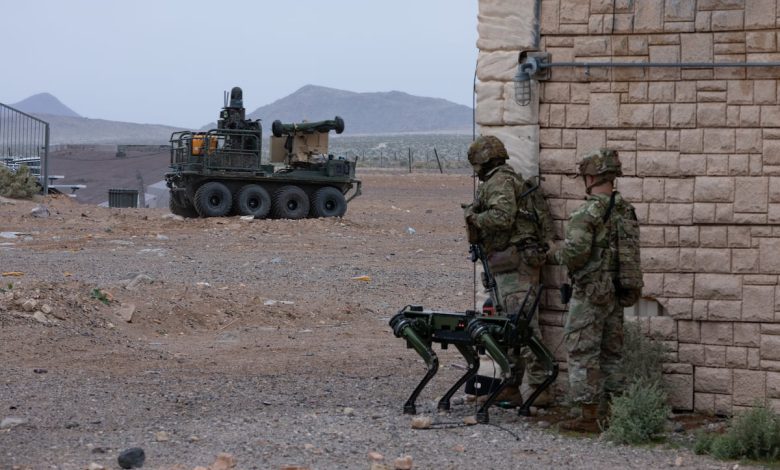Tech execs enlist in Army Reserve for new innovation detachment

Four Silicon Valley technology executives from major companies are joining the U.S Army Reserve as officers to inject the speed and expertise of commercial technology development into military innovation through the newly established Detachment 201, an Executive Innovation Corps, the service announced Friday.
The Pentagon has long turned to civilian experts for technological insight, from World War II-era scientists to modern advisory boards like the Defense Innovation Board. Detachment 201 takes the desire to collaborate with the high-technology industry to a new level: embedding senior tech execs directly into the Army Reserve as uniformed officers.
Those first Army Reserve lieutenant colonels, who will be sworn in today are Shyam Sankar, Palantir’s chief technology officer; Andrew Bosworth, chief technology officer of Meta; Kevin Weil, OpenAI’s chief product officer; and Bob McGrew, an advisor at Thinking Machines Lab and former chief research officer for OpenAI, the Army statement lists.
“Their swearing-in is just the start of a bigger mission to inspire more tech pros to serve without leaving their careers, showing the next generation how to make a difference in uniform,” the statement reads.
In their roles in Det. 201, “they will work on targeted projects to help guide rapid and scalable tech solutions to complex problems,” the Army said. “By bringing private-sector know-how into uniform, Det. 201 is supercharging efforts like the Army Transformation Initiative, which aims to make the force leaner, smarter and more lethal.”
Army Secretary Dan Driscoll unveiled the initiative last month in a memo to the force laying out major changes to the command structure, formation make-up, canceling programs deemed out of the scope of the Army’s desired modernization pathway, and accelerating programs the service wants in order to become a more lethal and agile force.
The executives come from companies who have been entrenching themselves in military technology development.
After a rough start, Palantir has been a cornerstone of Army modernization for years, providing everything from an intelligence analytics system called the Distributed Common Ground System-Army to its Vantage data platform, which is under a contract and supports 100,000 users, to its Titan system that gives the service deep-sensing and sensor-fusion capabilities.
Palantir, along with a variety of other major companies like Google and Anduril, is also working with the Army as it develops a new command-and-control architecture from the ground up.
OpenAI and Meta have also pivoted to embrace military applications. OpenAI has partnered with Anduril on artificial-intelligence-enhanced air-defense systems, for example. Meta has also begun partnering with other companies like Anduril to work on AI tools for the military.
Thinking Machines Lab, which employs a large number of former OpenAI developers including its co-founder, was established earlier this year. Its foundational focus is human-AI collaboration, a key necessity for the Army as it works on how to best integrate humans with machines on the battlefield in a meaningful way.
Jen Judson is an award-winning journalist covering land warfare for Defense News. She has also worked for Politico and Inside Defense. She holds a Master of Science degree in journalism from Boston University and a Bachelor of Arts degree from Kenyon College.







